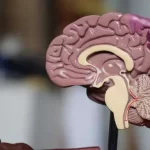How Supplements and Meds Can Trigger the 7 Signs of Liver Injury
The liver, often overshadowed by its flashier counterparts like the heart and brain, is a powerhouse organ that plays a pivotal role in your overall health. It’s the ultimate multitasker, responsible for processing nutrients, detoxifying your body, and regulating countless bodily functions. In essence, your liver is the body’s ultimate filtration and purification system, quietly toiling away to keep you feeling your best.
But here’s the catch: your liver isn’t invincible. Just like any superhero, it has its weaknesses, and one of the most significant threats to its well-being comes from substances we often underestimate – supplements and medications. In our pursuit of better health, we sometimes unknowingly put our liver at risk.
In this article, we’ll delve into the world of liver health, unveiling the secrets that can help you unlock a healthier life. We’ll introduce you to the LiverTox database, which ranks supplements and medications based on their potential to cause liver injury. You’ll discover the telltale signs of liver injury, both the obvious and the subtle, that can affect your well-being. But it doesn’t stop there – we’ll explore a hidden villain known as cholestasis and how it can impact your health.
So, are you ready to embark on a journey to understand the mysteries of your liver? 7
7 Major Signs of Liver Injury
The liver’s role in maintaining overall well-being cannot be overstated, and when it’s not functioning optimally, various symptoms may manifest. While the liver diligently performs its functions, it’s not immune to harm. Here, we’ll discuss the most common signs of liver injury that should not be ignored:
1. Nausea or Vomiting:
Unexplained bouts of nausea or vomiting can often be linked to liver distress. It’s your body’s way of telling you that something may be amiss within this vital organ.
2. Abdominal Pain or Swelling:
If you’ve noticed persistent abdominal discomfort or a feeling of bloating, your liver could be sending distress signals. This discomfort may manifest as a dull ache or a fullness in the upper right side of your abdomen.
3. Fatigue or Weakness:
Feeling chronically tired and weak is a sign that your liver might be struggling. When the liver isn’t functioning optimally, it can affect your body’s energy production.
4. Loss of Appetite:
An unexplained loss of appetite can be associated with liver issues. If you find yourself constantly disinterested in food or experiencing early satiety, it’s worth considering your liver’s health.
5. Dark Urine:
The color of your urine can be a subtle indicator of liver function. Dark urine, especially if it resembles the color of cola, can be a sign that your liver needs attention.
6. Jaundice (Yellowing of the Skin or Eyes):
Perhaps one of the most recognizable signs of liver distress, jaundice presents as a yellowing of the skin and the whites of the eyes. It’s a clear indication that something is affecting your liver’s ability to process bilirubin, a waste product.
7. Bruising or Bleeding Easily:
An unexpected increase in bruising or bleeding might indicate liver trouble. The liver produces clotting factors that help prevent excessive bleeding, and when it’s impaired, you may find that you bruise more easily.
These signs are the liver’s way of alerting you to potential issues, but sometimes the damage happens gradually, making it harder to connect the dots. It’s essential to pay attention to your body and not dismiss these signals, as early detection can make a world of difference in addressing liver health.
Cholestasis – The Hidden Culprit
Behind the scenes of liver health lies a less-known but critical aspect – cholestasis. It’s a term you may not have heard often, but it can significantly affect your well-being. Imagine it as a silent saboteur in your body’s intricate orchestra, disrupting the harmony of your health.
What is Cholestasis?
Cholestasis is a condition where the flow of bile, the river of fluid responsible for carrying toxins and waste out of your body through your stool, becomes sluggish or obstructed. In the world of nutritional therapy, we often refer to this as “biliary stasis” or “sluggish bile flow.” It’s more common than you might think and can have a profound impact on your health.
The Domino Effect on Your Health:
Cholestasis isn’t just about bile slowing down – it’s about the entire system taking a hit. Here are some of the health issues associated with cholestasis:
Chronic Fatigue:
Sluggish bile flow can leave you feeling constantly fatigued, as your body struggles to efficiently eliminate toxins.
Gastrointestinal Problems:
Think constipation, diarrhea, SIBO (Small Intestinal Bacterial Overgrowth), IBS (Irritable Bowel Syndrome), and other gut issues. They can often be linked to cholestasis.
Estrogen Dominance:
Cholestasis can disrupt hormone metabolism, leading to estrogen dominance and related health problems.
Mental Health Symptoms:
Anxiety and depression can be exacerbated when your liver’s detoxification system is compromised.
Poor Detoxification:
Your liver plays a vital role in detoxifying your body. When it’s underperforming due to cholestasis, your detoxification system becomes less effective.
The Nutritional Connection:
Cholestasis isn’t always a solo act. It can be compounded by certain nutritional deficiencies, particularly if you’re not consuming enough high-quality animal protein and are dealing with zinc insufficiency. These deficiencies further burden your liver’s already challenging task.
Understanding cholestasis is like uncovering a hidden link to numerous health issues. It’s a reminder that the body’s systems are intricately connected, and when one part falters, the effects ripple throughout. The drain on your detoxification system can slow it down, causing a backup that impacts your entire body.
Supplements Linked to Liver Injury
Now that we’ve delved into the enigmatic world of cholestasis, it’s time to shed light on another aspect of liver health – the supplements we often turn to for better well-being. While supplements can offer benefits, not all are created equal, and some may pose risks to your liver.
Unraveling the Supplement Mystery
Supplements have become an integral part of many people’s health routines. They promise a range of benefits, from boosting energy to supporting immune function and improving overall vitality. However, it’s crucial to choose your supplements wisely, as some can have adverse effects on your liver.
Below, we’ve compiled a list of common supplements and their LiverTox likelihood scores, which indicate their potential to cause liver injury. While not all supplements are inherently harmful, understanding their risk levels is essential for making informed choices about your health.
Ashwagandha – Likelihood score: C (probable cause of clinically apparent liver injury).
Ashwagandha, a popular adaptogenic herb, is widely used for stress relief and promoting overall well-being. However, it’s essential to be cautious, as it carries a moderate risk of causing liver injury.
Kava Kava – Likelihood score: A (well-known cause of clinically apparent liver injury).Kava Kava, often used for relaxation and anxiety relief, is a well-known offender when it comes to liver injury. Its use should be approached with caution.
Green Tea – Likelihood score: A (well-established cause of clinically apparent liver injury).While green tea is celebrated for its antioxidants and potential health benefits, it can also be a culprit in liver injury cases. Moderation is key.
Black Cohosh – Likelihood score: A (products sold as black cohosh are well-established causes of clinically apparent liver injury, but the specific ingredient or component that accounts for the injury is unclear). Black Cohosh, used by some for menopausal symptoms, has been linked to liver injury, though the exact cause remains uncertain.
Aloe Vera – Likelihood score: B (likely but rare cause of clinically apparent liver injury). Aloe Vera, known for its soothing properties, can sometimes harm the liver. It’s essential to use it sparingly and monitor for any adverse effects.
Garcinia Cambogia – Likelihood score: B (likely rare cause of clinically apparent liver injury).
This popular weight loss supplement carries a moderate risk of liver injury, and its use should be approached cautiously.
Hydroxycut – Likelihood score: B (likely cause of clinically apparent liver injury).
Hydroxycut, a weight loss supplement, has been associated with liver injury cases, emphasizing the need for prudence.
Comfrey – Likelihood score: C (when taken orally, a probable cause of clinically apparent liver injury due to sinusoidal obstruction syndrome). Comfrey, used for various medicinal purposes, can be particularly harmful when ingested orally, leading to liver issues.
Valerian – Likelihood score: C (probable rare cause of clinically apparent liver injury).
Valerian, often used for sleep and relaxation, has a moderate risk of causing liver injury.
Turmeric – Likelihood score: B (likely rare cause of clinically apparent liver injury).
Turmeric, celebrated for its anti-inflammatory properties, carries a moderate risk of liver injury.
Kratom – Likelihood Score: B (likely cause of clinically apparent liver injury).
Kratom, a plant used for its stimulant and opioid-like effects, has been linked to liver injury cases.
Skullcap – Likelihood score: B (very likely but rare cause of clinically apparent liver injury).
Skullcap, sometimes used for anxiety and sleep, carries a moderate risk of liver injury.
Ba Jiao Lian – Likelihood score: B (likely cause of clinically apparent liver injury).
Ba Jiao Lian, an herb used in traditional Chinese medicine, has a moderate risk of causing liver injury.
Noni – Likelihood score: C (probable rare cause of clinically apparent liver injury).
Noni, known for its potential health benefits, carries a moderate risk of liver injury.
Iron – Likelihood score: A[H] (well-established cause of clinically apparent acute and chronic liver injury when given in high doses). Iron, while essential in moderate amounts, can lead to liver injury when taken in excessive doses.
Vitamin A – Likelihood score: A[H] (well-established cause of liver injury when used in high doses).
Vitamin A, necessary for vision and immune function, can be harmful to the liver in high doses.
Energy Drinks – Likelihood score: C[H] (probable rare cause of clinically apparent liver injury when used in high amounts). Excessive consumption of energy drinks, often containing high levels of caffeine and other compounds, can strain the liver.
Niacin (B3) – Likelihood score: A[HD] (well-known cause of clinically apparent liver injury, but only when given in high doses). Niacin, when taken in high doses, can be detrimental to the liver.
Copper – Likelihood score: A[HD] (well-known cause of acute and chronic liver injury but only when taken in high doses). Copper, an essential mineral, can lead to liver injury when consumed in excessive amounts.
These likelihood scores offer insight into the potential risks associated with these supplements. When considering supplements for your health regimen, it’s wise to opt for those with lower likelihood scores (E or lower) to minimize the risk to your liver. Always consult with a healthcare professional before adding new supplements to your routine.
Common Rx Meds and Over-the-Counter Drugs
As we continue our exploration of the hidden dangers that can affect your liver, it’s crucial to shine a spotlight on some everyday culprits – prescription medications and over-the-counter drugs. These substances, often taken without a second thought, can quietly impact your health, especially if used for extended periods.
The Unseen Impact of Medications
While prescription medications and over-the-counter drugs are meant to alleviate various health issues, it’s easy to overlook their potential impact on your liver. These substances are frequently used, sometimes for years, which can increase the risk of liver injury.
Below, we’ve compiled a list of common medications and their LiverTox likelihood scores, revealing their potential to cause liver injury. It’s essential to be aware of the impact these medications can have on your liver, especially if you’ve been using them regularly.
Ibuprofen – Likelihood score: A (well-known but rare cause of clinically apparent liver injury).
Ibuprofen, a commonly used pain reliever, can, on rare occasions, lead to liver injury. It’s vital to follow recommended dosages and consult your healthcare provider.
Acetaminophen (Tylenol) – Likelihood score: A[HD] (well-established cause of liver injury, but severe cases occur only with high doses). While widely used for pain and fever relief, acetaminophen can be harmful to the liver when taken in high doses. Always adhere to the recommended dosage.
Aspirin – Likelihood score: A[HD] (well-known cause of clinically apparent liver injury when given in high doses). Aspirin, a common pain reliever and anti-inflammatory, can potentially harm the liver when consumed in excessive amounts.
Birth Control Pills – Likelihood score: A (well-known cause of various forms of clinically apparent liver injury). Oral contraceptives, while effective for birth control, can affect the liver in various ways. It’s essential to be aware of these potential risks.
Anti-depressants – Various anti-depressant medications, such as:
Fluoxetine (Prozac) – Likelihood score: C (probable cause of clinically apparent liver injury).
Citalopram (Celexa) – Likelihood score: C (probable cause of clinically apparent liver injury).
Sertraline (Zoloft) – Likelihood score: B (likely but rare cause of clinically apparent liver injury).
These anti-depressant medications can have varying degrees of impact on the liver. If you’re on these medications, it’s crucial to monitor your liver health.
Antibiotics – Various antibiotics, such as:
Amoxicillin – Likelihood score: B (highly likely but rare cause of clinically apparent liver injury).
Azithromycin – Likelihood score: A (well-known but rare cause of clinically apparent liver injury).
Amoxicillin and Clavulanate – Likelihood score: A (well-established cause of clinically apparent liver injury).
Cephalosporin – Likelihood score: B (cephalosporins as a class are very likely but rare causes of clinically apparent liver injury).
These commonly prescribed antibiotics can sometimes lead to liver injury, emphasizing the importance of responsible antibiotic use. If any of the above medications are part of your daily routine, or if you’ve taken them in the past, it’s essential to consider their potential impact on your health. Sometimes, seemingly “rare” side effects become more apparent with prolonged use.
The key takeaway here is to be mindful of the medications you consume and their potential effects on your liver. It’s always a good practice to consult with a healthcare professional, especially if you’ve been using these medications for an extended period.
Liver Testing
Now that we’ve uncovered the potential risks associated with supplements, medications, and their impact on liver health, it’s time to explore how you can gain valuable insights into the condition of your liver. Knowledge is power, and understanding your liver’s health status is a crucial step in maintaining your overall well-being.
Unlocking the Secrets of Your Liver’s Health
Liver testing serves as a powerful tool in assessing the health of this vital organ. It provides valuable data that can help you and your healthcare provider make informed decisions about your well-being. Here are some general labs and tests that can shed light on your liver’s condition:
Comprehensive Metabolic Panel Markers:
AST (Aspartate Aminotransferase)
ALT (Alanine Aminotransferase)
Bilirubin
Alkaline Phosphatase
These markers are part of a standard blood panel and can offer insights into liver function. Elevated levels of AST and ALT, for instance, can indicate liver injury or inflammation.
Nutrient Blood Labs:
Vitamin A
Iron
Copper
These tests assess specific nutrients that, when imbalanced, can contribute to liver injury. It’s worth noting that popular nutrient trends like “eating the rainbow” may inadvertently lead to nutrient excesses that impact liver health.
Other Blood Labs:
GGT (Gamma-Glutamyl Transferase): GGT is an enzyme found in the liver, and elevated levels can indicate liver disease or damage. It’s often included in liver function panels to provide a comprehensive assessment.
Liver/Gallbladder Ultrasound:
This imaging test is a non-invasive way to investigate liver health. It can help identify issues such as fatty liver and biliary stasis.
Nutrient Testing for Liver Health:
For a more in-depth understanding of your liver’s health and nutrient status, consider seeking nutrient testing specifically tailored to liver function.
Regular liver testing can provide early warning signs of potential issues and guide you in making lifestyle adjustments or seeking further medical guidance. Your liver’s health is a critical component of your overall well-being, and knowing its status is empowering.
Supporting Your Liver
So far you’ve gained insights into the importance of this often-overlooked organ and the potential risks it faces from supplements, medications, and more. Now, let’s shift our focus to the proactive steps you can take to support and optimize your liver’s well-being.
Nurturing Your Body’s Unsung Hero
When it comes to maintaining a healthy liver, sometimes it’s not about what you should do but rather what you should avoid doing. The notion of “more is better” doesn’t always apply, especially when it comes to health foods and supplements.
1. Avoid Overdoing “Health Food”:
It’s easy to fall into the trap of over-consuming health foods and supplements, thinking that more is better. However, as you’ve learned, some supplements can pose risks to your liver. A balanced approach to nutrition is key.
2. Be Mindful of Supplements:
When considering supplements for your health regimen, prioritize those with lower likelihood scores (E or lower) on the LiverTox scale. Safety should always be a priority, and consulting with a healthcare professional is advisable.
3. Consult a Healthcare Provider:
If you suspect that your liver is impaired in any way, seeking professional advice is invaluable. A healthcare provider can recommend appropriate tests and guide you on the best course of action.
4. Consider a Liver Health Masterclass:
For a comprehensive approach to liver health, you might consider participating in a liver health masterclass. These programs can provide you with in-depth knowledge and strategies to optimize your liver function.
Remember that a healthy liver is not just about avoiding harm; it’s also about nourishing and supporting this essential organ. Here are some general lifestyle tips to keep your liver in top shape:
Balanced Nutrition:
A well-rounded diet that includes plenty of fruits, vegetables, lean proteins, and whole grains provides the nutrients your liver needs to function optimally.
Hydration: Staying well-hydrated helps your liver in the detoxification process. Aim to drink an adequate amount of water daily.
Moderation in Alcohol Consumption: Excessive alcohol can harm your liver. If you choose to drink, do so in moderation.
Regular Exercise: Physical activity can aid in weight management and overall health, which indirectly benefits your liver.
Stress Management: Chronic stress can negatively impact liver health. Incorporating stress-reduction techniques like meditation or yoga can be beneficial.
Adequate Sleep: Getting enough quality sleep allows your body, including your liver, to repair and regenerate.
Your liver is the unsung hero working tirelessly behind the scenes to keep your body in balance. It’s essential to be mindful of the substances you introduce into your body and to prioritize its well-being. By taking proactive steps to support your liver and seeking professional guidance when needed, you can unlock the secrets to a healthier, more vibrant life.













